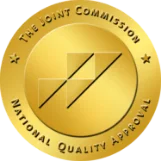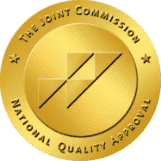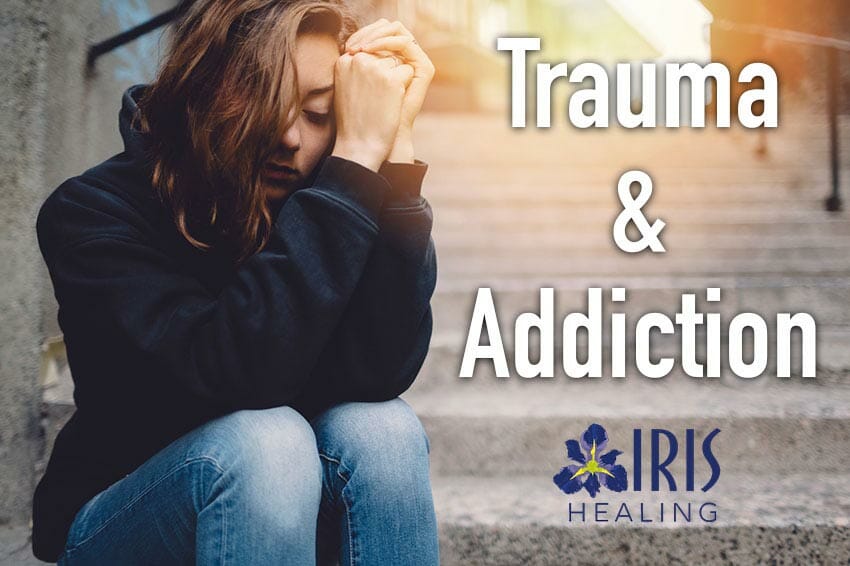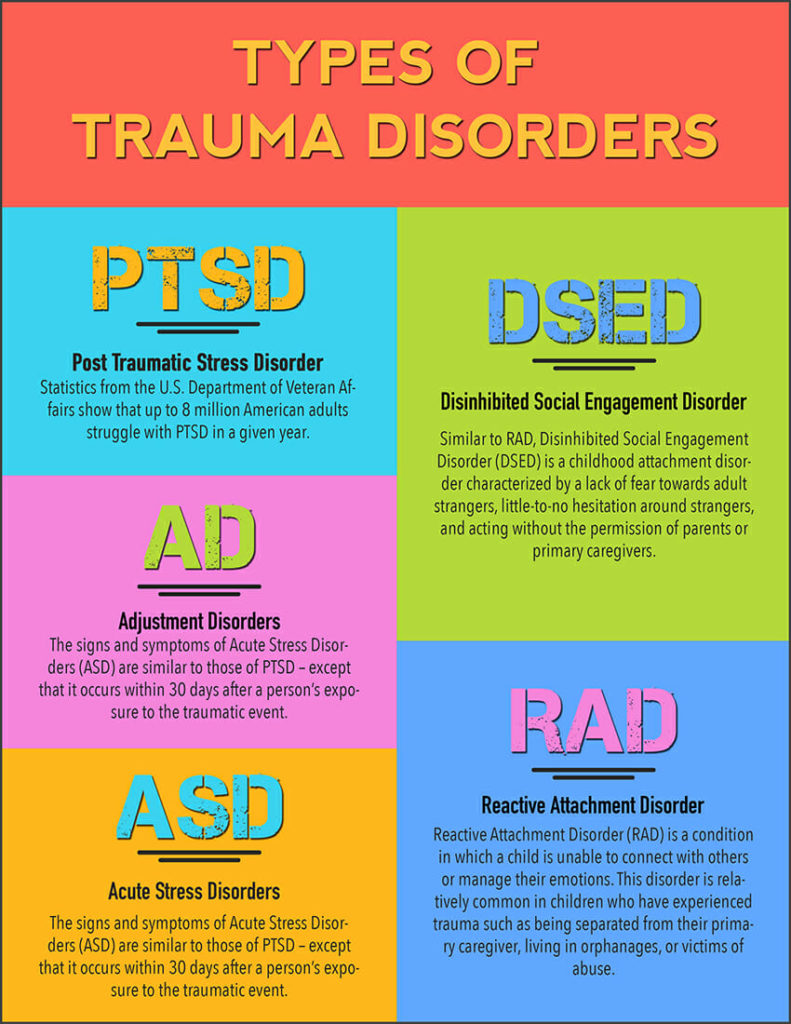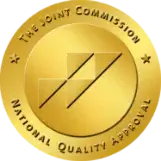There is often a strong connection between experiencing a traumatic event and using substances as a coping mechanism, so trauma and addiction treatment is necessary for a lasting recovery.
Coping with trauma is an uphill battle! The profound sense of isolation, a feeling of helplessness, living in constant fear, impulsiveness, and irritability associated with traumatic events can be detrimental to a person’s ability to function socially, at home, or work.
If these concerns are not resolved, they can develop into serious long-term issues – including depression, PTSD, drug addiction, and anxiety disorders
.
Regardless of the traumatic events you’ve experienced or how “far-gone” you feel, there’s hope! There are several treatment modalities that can help you live a normal life. At Iris Healing®, we employ a variety of tools to improve the outcome of your recovery, and some of them are unique in the treatment community.
However, effective treatment is hinged on identifying when it’s time to seek professional trauma therapy. Some people are either reluctant to go through the recovery process or they don’t even know that they’re victims of past traumatic events.
The American Psychological Association (APA) defines trauma as “an emotional response to a terrible event like an accident, rape or natural disaster.”
In other words, a person who has witnessed a violent or tragic act, experienced intense pain, or feared for his or her safety has experienced trauma.
Some will be able to cope with the trauma – but for those who don’t, they may tumble into a path of long-lasting complications (some life-threatening)
Of particular concern is the risk of developing Post Traumatic Stress Disorder (PTSD). This trauma disorder can severely disrupt the behavior, thinking, emotions, relationships, and even physical health of trauma victims.
Although people tend to associate it with life-threatening incidents such as war and assault, the reality is that trauma can be caused by a wide range of incidents—and it manifests in a variety of psychological and physical symptoms. Any situation that overwhelms your ability to cope with normal life events can result in trauma.
The more helpless or frightened you feel, the higher the chances that you’ll experience symptoms of trauma.
For this reason, the impact of a traumatic event is determined more by your subjective experience of the situation – rather than the objective circumstances. This is the reason two people might undergo the same level of traumatic exposure but they portray varied symptoms.
It’s important to note that you don’t have to be directly involved in a traumatic or stressful event to manifest psychological, emotional, and physical symptoms of trauma.
For example, even though very few people will be direct victims of a violent attack, the horrific images circulated on social media may cause traumatic stress to a viewer several miles away.
Similarly, children who grow up watching their parents engage in violent arguments may have long-lasting traumatic experiences.
The emotional, physical, and psychological manifestation of a trauma event depends on several factors such as the personality type, existing life stressors, availability of support, coping mechanisms, and nature of the incident.
Generally, trauma disorders can be grouped based on the sign and symptoms observed.
At Iris Healing®, we offer help to victims of various types of trauma disorders – including their related conditions such as addiction.
Post Traumatic Stress Disorder (PTSD)
The symptoms of PTSD are typically long-lasting and the more severe in comparison to other trauma disorders such as ASD. Victims typically experience flashbacks or distressing memories of the traumatic event, irritability, sleeping problems, emotional numbness, and feelings of negativity.
They also portray reactive symptoms such as aggressive outbursts, always being on guard, startling easily, and engaging in self-destructive behaviors (especially drug abuse).
Acute Stress Disorders (ASD)
The signs and symptoms of Acute Stress Disorders (ASD) are similar to those of PTSD – except that it occurs within 30 days after a person’s exposure to the traumatic event.
ASD is a risk factor that may lead to PTSD if appropriate social support and trauma therapy are not provided.
Adjustment Disorders are characterized by an unhealthy response to changes or stress. A diagnosis of the disorder requires a person to experience symptoms that impair some areas of their life.
Reactive Attachment Disorder (RAD)
Reactive Attachment Disorder (RAD) is a condition in which a child is unable to connect with others or manage their emotions. This disorder is relatively common in children who have experienced trauma such as being separated from their primary caregiver, living in orphanages, or victims of abuse.
Disinhibited Social Engagement Disorder (DSED)
At Iris Healing®’s trauma therapy program, we look at the link between addiction and trauma from two perspectives:
Individuals burdened with trauma symptoms such as anxiety, fear, shame, irritability, sleeping problems, or hypersensitivity may turn to drugs or alcohol as a way to cope and self-medicate.
The constant and overwhelming feeling of emptiness or dread makes them yearn for relief, which they temporarily find in unhealthy behaviors.
For example, someone may consume stimulants to gain the energy and focus they need to push through the day, opioids to experience a brief moment of euphoria, or alcohol to function in social settings.
These temporary fixes open the doors toward drug addiction, and after a while, the drugs no longer offer the same relief they crave or previously experienced. In effect, they become another thorn in the trauma survivor’s life.
Impaired driving, dangerous neighborhoods, questionable acquaintances, and other aspects associated with drug or alcohol abuse predispose addicts to trauma-causing violence, accidents, and crime.
In addition to the aspects mentioned, people who abuse drugs and alcohol also tend to cope ineffectively with new traumatic events.
Whether trauma predisposes a person to addiction – or vice versa – the correlation between the two is undeniable. There is compelling evidence that links different types of trauma and addiction.
Addiction and Sexual Abuse
Drug and alcohol abuse is often used as a means to cope with traumatic memories of sexual assault
Addiction and Physical/Emotional Abuse
There are several levels or types of physical abuse that can lead a child onto a path of substance abuse later in their lives.
Addiction and Childhood Trauma
Traumatized children who crave acceptance or stability may look for comfort in substance abuse. And due to the chronic nature of drug dependency, unhealthy behaviors can persist into adulthood.
Addiction and Domestic Abuse
With this in mind, the most effective trauma healing programs must address trauma disorders as part of substance abuse treatment.
When it comes to trauma disorders, sometimes it’s not possible to “power through” or “wait it out.” The symptoms won’t just magically disappear!
Instead, they can lead to more serious conditions or life complications if left untreated. From social dysfunction, job loss, depression, broken relationships, to suicide – the risks cannot be ignored.
If you’re a victim of trauma, it’s important to get diagnosed and enroll in some form of trauma treatment or therapy.
Trauma healing techniques can help you learn to process events, cope with traumatic memories, and recover.
Your therapist will empower you to live a healthier and more fulfilling life. But keep in mind that healing trauma takes time. It’s a marathon, which demands practice, preparation, determination, courage, and the support of people around you.
At iris Healing, we understand that the levels of resiliency, reaction to traumatic events, and response to treatments vary from one person to another.
For this reason, we integrate different trauma healing modalities and tools allowing us to achieve higher recovery success rates as highlighted below.
Given the strong correlation between trauma and addiction, the two health problems need to be treated as interrelated or co-occurring disorders.
Without helping a person cope with the sense of isolation, fear, shame, and terror, he or she will not see the upside to sobriety – hence the risk of relapse or early dropout is high.
Similarly, attempting trauma therapy without addressing the corresponding addiction issues predisposes the patient to turn back to substance misuse as a coping mechanism.
By sustaining this spot with the help of mindful attention, it’s possible to access emotions on a deeper level, allowing the therapist to address the underlying negative experiences.
Different brainwave frequencies occur during particular activities. When there is a mismatch between your activity levels and the brainwaves, this can manifest as symptoms of addiction or trauma.
This technique is used in healing trauma by improving abnormal brain patterns that are associated with different types of trauma disorders and addiction.
When used together with other trauma therapies, it can be extremely powerful and effective at improving the long-term outcome and facilitate holistic healing.
It uses magnetic fields that are delivered repetitively in highly focused pulses. This induces electrical currents that stimulate the activity of neurotransmitters in targeted brain areas (typically the prefrontal cortex).
Although there’s convincing evidence on the efficacy of TMS therapy for substance abuse and PTSD, the FDA has only cleared the procedure for the treatment of Major Depressive Disorder (MDD). Therefore, administering TMS for any other mental disorder is described as “off label.”
Cognitive Behavioral Therapy (CBT)
Cognitive Behavioral Therapy (CBT) is a psychotherapeutic treatment that has been demonstrated to be effective for substance abuse problems, anxiety disorders, depression, and other mental illnesses.
The underlying principle of CBT is that psychological problems are based on unhealthy ways of thinking that are learned behaviors.
However, these destructive thought patterns – which are associated with negative emotions or behavior – can be identified and changed.
In short, negative thoughts are identified and replaced with more realistic, positive, and objective thoughts.
Cognitive Behavioral Therapy uses a wide range of strategies such as mental distractions, relaxation techniques, role-playing, and journaling to help patients live better and healthier lives.
Dialectical Behavior Therapy (DBT)
Dialectical Behavior Therapy (DBT) is a type of Cognitive Behavioral Therapy that aims to foster both acceptance and change rather than address one aspect alone – hence improving the outcome of treatment.
It’s an evidence-based psychotherapy treatment modality that teaches people how to effectively change negative behavior through emotional regulation, interpersonal effectiveness, distress tolerance, and core mindfulness.
DBT has been used in the treatment of several mental health problems, including substance use disorder, PTSD, depression, anxiety disorders, and attention-deficit/hyperactivity disorder (ADHD).
Eye Movement Desensitization and Reprocessing (EMDR)
Eye Movement Desensitization and Reprocessing (EMDR) is an effective psychotherapy technique use in the healing of trauma victims.
As an interactive technique, it requires the individual to relieve or recall traumatic experiences in brief doses. A trained therapist leverages a patient’s rapid, rhythmic eye movements to lessen the impact of emotionally-charged memories associated with a traumatic event.
Somatic Therapies are based on the belief that your emotions, spirit, body, and mind are all connected.
This trauma therapy technique combines talk therapy and physical therapies (e.g., meditation, relaxation exercises, yoga, massage therapy, and deep breathing).
By helping to develop an awareness of the connection between your mind and body, somatic therapy can help you release undesirable emotions that remain long after negative experiences occurred in your past.
Hypnotherapy is typically an adjunct technique used with other forms of medical or psychological treatment. It’s basically guided hypnosis performed by a clinical hypnotherapist.
During a hypnotherapy session, it puts the person in a trance-like state—similar to meditation or being absorbed in a movie.
This allows the client to dig deep into their minds and find ways to resolve undesirable spontaneous behaviors, sexual dysfunction, substance addiction, phobias, and anxiety issues.
Psycho-drama is a therapeutic approach that uses role-playing and guided drama to help patients deal with their problems.
As a technique for healing trauma, it gives victims of traumatic events a greater perspective of their conflicts, concerns, and other problematic areas in their lives.
In a typical psychodrama session, a trained therapist guides an individual or a group in reenacting specific scenes. The end-goal of the trauma therapy is to give patients new insights, help them resolve problems more effectively, and allow them to develop new life skills.
At Iris Healing®, we specialize in offering holistic treatments for mental health issues and their co-occurring disorders such as trauma disorders and addiction.
At Iris Healing®, we specialize in offering holistic treatments for mental health issues and their co-occurring disorders such as trauma disorders and addiction.
Coupled with our compassionate approach, Iris Healing® gives you all the appropriate tools and inspiration you need for a successful recovery.
Don’t let your traumatic past experiences dictate your life. Get help and take back control because it’s never too late!

